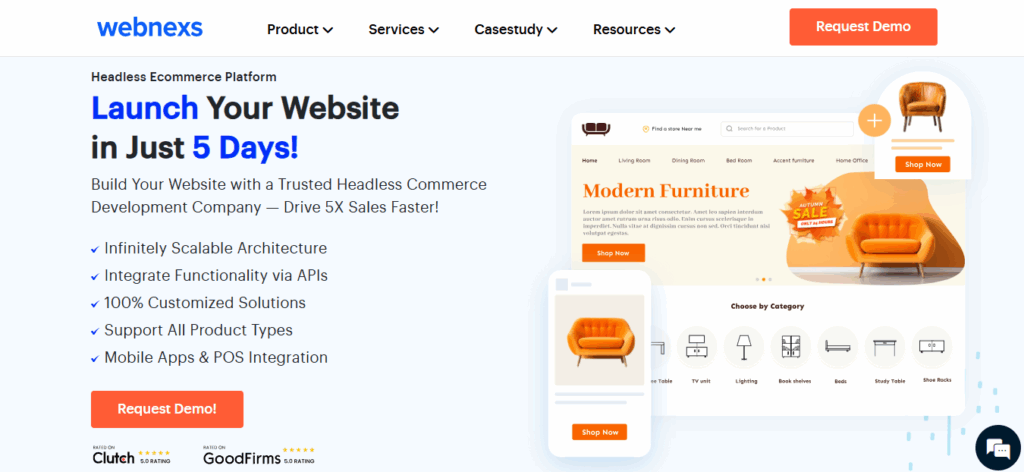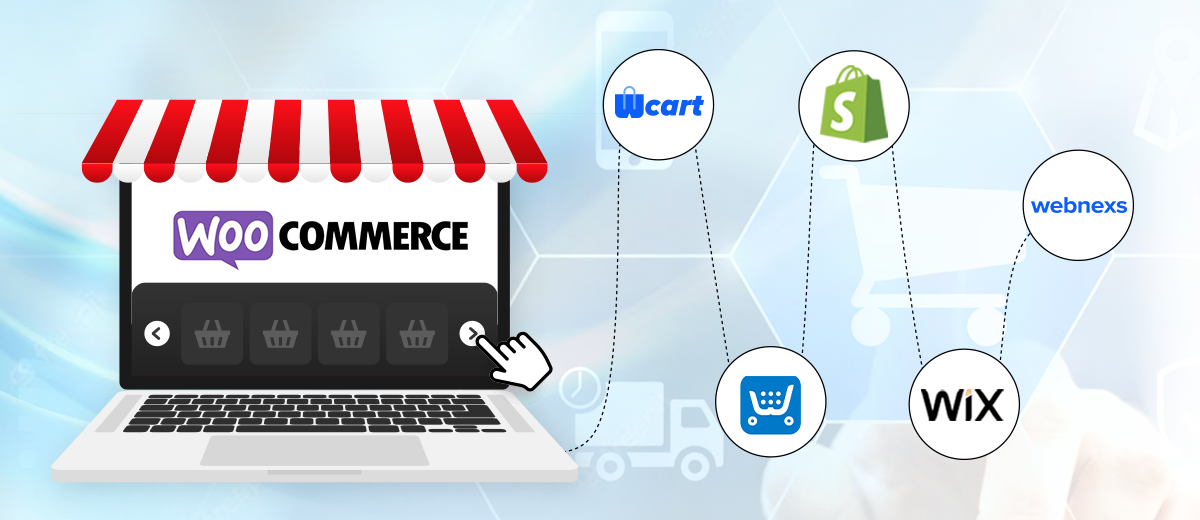Look, I get it. WooCommerce seemed like the obvious choice when you started your online store. Free, popular, tons of plugins – what could go wrong? Well, if you’re here reading this, probably quite a bit.
Maybe it’s the constant plugin updates that break your site. Or perhaps you’re fed up with paying for every little feature that should come built-in. Heck, maybe you just want something that doesn’t require a computer science degree to customize.
Here’s what nobody tells you upfront: WooCommerce works great… if you’ve got the time, patience, and budget to make it work. For the rest of us running actual businesses, there are way better options out there.
I’ve spent months testing different platforms after my own WooCommerce nightmare (three-day site crash during Black Friday – never again). What I found surprised me. These five WooCommerce alternatives don’t just match what WooCommerce offers – they blow it out of the water in ways that actually matter for your bottom line.
No fluff, no sponsored nonsense. Just honest comparisons of platforms that could save you hundreds of hours and thousands of dollars. Let’s dig in.
Read More: To Know about Top Ecommerce Alternatives
Reason for Choosing Woocommerce Alternatives
There are several reasons why businesses may consider switching from WooCommerce to an alternative e-commerce platform. These reasons include:
- Cost: While WooCommerce is free to use, the cost of hosting, extensions, and payment gateway fees can add up quickly, especially as your business grows and the need for a developer to maintain them is bigger.
- Functionality: WooCommerce is a great platform for small to medium-sized businesses, but it may not have all the features and functionalities that larger businesses require.
- Scalability: As your business grows, you may need a more scalable ecommerce platform that can handle increased traffic and sales.
- User Experience: While WooCommerce is relatively easy to use, some businesses may find it too complicated or time-consuming to set up and maintain.
- Design limitations: WooCommerce has some design limitations that may make it challenging to create a unique and customized online store.
Overall by exploring the top WooCommerce alternatives, businesses can find an e-commerce platform that better suits their needs and helps them achieve their goals.
5 Best Woocommerce Alternatives for Your Online Store
When it comes to e-commerce platforms, WooCommerce is just one option among many. There are several other website builders available that offer different features, pricing models, and user experiences.
1. Wcart

Features and benefits of Wcart
Wcart is a cloud-based ecommerce platform that provides businesses with a user-friendly interface to design and launch their online store quickly. It offers more flexibility and customization options compared to Woocommerce. Businesses can sell physical and digital products, services, and subscriptions on the platform.
Wcart provides users with a user-friendly interface that enables them to design their online store quickly and easily using a drag-and-drop website builder. It also offers customizable checkout pages, allowing businesses to tailor their checkout process to their customers’ needs. The platform also integrates with various payment gateways, including PayPal, Stripe, and Square. Additionally, Wcart offers a free trial to test out the platform before committing to a pricing plan.
Pros and cons of Wcart
Pros:
- Customization options: Wcart offers more customization options than Woocommerce which allows businesses to create a unique and personalized online store.
- Lower transaction fees: Wcart charges lower transaction fees than Woocommerce, which can save businesses money on every sale.
- User-friendly interface: Wcart’s interface is designed with ease of use in mind, allowing businesses to create and launch their online store quickly and with minimal technical knowledge.
- Affordable pricing plans: Wcart provides businesses with a variety of pricing plans that are affordable and flexible, catering to the needs and budgets of businesses of all sizes.
- Multi-currency support: Wcart provides multi-currency support, which is beneficial for businesses that sell their products or services to customers in different countries and need to display prices in various currencies.
- Extensive 3rd-Party Apps integration: You can integrate any app through the availability of API.
Con’s:
- Limited app store: Wcart’s app store is not as extensive as Woocommerce’s, which could limit a business’s ability to add new features or functionality. This isn’t a problem to launch your store with them as the apps are ready already.
Overall, Wcart is a viable option for businesses looking for a Woocommerce alternative that offers more customization and flexibility. Hence Wcart is a versatile ecommerce platform that offers a user-friendly interface and affordable pricing plans, making it a great option for businesses of all sizes.
Start Your Online Store Today and Grow Your Business!
2. Webnexs

Features and benefits of Webnexs
Webnexs is an ecommerce platform that provides businesses with a comprehensive set of tools and features to create and manage their online stores effectively. It offers a user-friendly interface that allows businesses to design their storefronts, manage inventory, process payments, and track sales and customer data.
One of the standout features of Webnexs is its drag-and-drop storefront builder, which enables businesses to create a customized storefront without any coding knowledge. Additionally, the platform offers a range of templates and themes to help businesses get started quickly and easily.
Webnexs provides businesses with various marketing and SEO tools to help drive traffic and increase sales. The platform offers email marketing, social media integration, and SEO optimization tools to help businesses reach and engage their target audience.
Overall, Webnexs is a flexible and scalable ecommerce platform that caters to businesses of all sizes and provides them with the tools and features needed to succeed in today’s competitive online marketplace.
Pros and cons of Webnexs
Pros:
- User-friendly interface: Webnexs provides businesses with an intuitive and easy-to-use interface, making it simple for them to set up and manage their online stores.
- Comprehensive feature set: Webnexs provides businesses with a comprehensive set of features that enable them to create and manage their online stores efficiently. These features include product management, payment processing, marketing tools, and analytics, among others.
- Multi-channel selling: By selling on various marketplaces and social media platforms, businesses can reach a wider audience and increase their sales.
- Responsive design: Webnexs provides responsive design templates that are optimized for mobile devices, enabling businesses to effectively reach customers on any device.
Con’s:
- Pricing: Webnexs offers a unique pricing model that involves a one-time payment solution, which may be slightly higher than other ecommerce platforms. However, this pricing includes a variety of additional features that can help businesses succeed and increase their return on investment.
Webnexs is a comprehensive ecommerce platform that provides businesses with a wide range of features and tools to effectively create and manage their online stores.
Launch Your Ecommerce Website in Minutes With Our Easy Builder.
3. Shopify

Features and benefits of Shopify
Some of the key features of Shopify include an intuitive drag-and-drop website builder, customizable themes, and a variety of payment gateway integrations.
One of the main benefits of Shopify is its user-friendly interface, which allows businesses to launch their online store quickly without requiring extensive technical knowledge. Shopify also provides businesses with various marketing tools, including discounts, gift cards, and email campaigns, to help promote their products and drive sales.
Other benefits of Shopify include reliable security measures, regular updates and patches, and 24/7 customer support. Additionally, Shopify offers scalable pricing plans that cater to businesses of all sizes, from startups to large enterprises.
Pros and cons of Shopify
Pros:
User-Friendly Interface: Shopify is known for its intuitive and easy-to-use interface, which allows businesses to create and manage their online store quickly.
Customizable Themes: Shopify provides businesses with a range of customizable themes to choose from, enabling them to create a unique and visually appealing online store.
Third-Party Integrations: Shopify integrates seamlessly with a variety of third-party applications and tools, including social media channels, payment gateways, and shipping providers.
Marketing Tools: Shopify provides businesses with various marketing tools, including discounts, gift cards, and email campaigns, to help promote their products and drive sales.
Con’s:
Limited Customization: While Shopify’s themes are customizable, some businesses may find the platform’s customization options limited compared to other ecommerce platforms.
App Dependency: While Shopify integrates with third-party applications, some businesses may find that they need to rely heavily on apps to add functionality to their online store, which can increase costs and complexity.
SEO Limitations: While Shopify provides basic SEO features, some businesses may find that the platform’s SEO capabilities are limited compared to other ecommerce platforms.
Read More: To Know about Shopify Alternatives
4. Magento

Features and benefits of Magento
Magento is a popular ecommerce platform that provides businesses with a range of features and benefits. Some of its key features include an extensive range of plugins and themes, robust security measures, and a highly scalable architecture that can accommodate businesses of all sizes.
Magento allows businesses to customize their online store’s design and functionality, including features such as customer segmentation and targeted promotions. The platform also offers seamless integration with popular payment gateways, shipping providers, and third-party applications.
Magento’s powerful analytics and reporting tools provide businesses with valuable insights into customer behavior, sales trends, and other critical metrics. It also offers excellent SEO capabilities, allowing businesses to optimize their online store’s visibility on search engines.
Other benefits of Magento include a large community of developers and users who contribute to its development, regular updates and security patches, and excellent customer support. Magento is available in both open-source and enterprise versions, providing businesses with flexible pricing options based on their needs and budget.
Pros and cons of Magento
Pros:
- Scalability: It can handle large numbers of products, customers, and orders without sacrificing performance.
- Open-source: Magento is an open-source ecommerce platform that provides businesses with free access to its software. Being open-source means that businesses can customize Magento’s code to meet their specific needs, and there is a vast community of developers and users who contribute to the platform’s development and offer support.
- Multi-store management: With Magento, businesses can manage multiple online stores using a single backend. This feature simplifies operations and enables businesses to track the performance of each store more efficiently.
Con’s:
- Complexity: Setting up and managing a Magento online store may require a steep learning curve and demand more resources to maintain effectively.
- Cost: While the software itself is free, using Magento can be costly due to the need for hosting, development, and extensions. This can make it less accessible for smaller businesses or those on a tight budget.
- Resource-intensive: Magento’s resource requirements can be high, as the platform demands significant server resources and processing power.
Read More: To Know about Magento Alternatives
5. Squarespace

Features and benefits of Squarespace
Squarespace is a website builder and ecommerce platform that enables businesses to create and manage their online store, website, blog, and other digital content in one place.
With a range of templates, design tools, and ecommerce features, Squarespace helps businesses create a professional-looking online store quickly and easily. The platform is popular for its user-friendly interface and customer support, making it a suitable choice for businesses of all sizes.
Pros And Cons Of Squarespace
Pros:
- User-friendly interface: Squarespace has a user-friendly interface that makes it easy for anyone to create a professional-looking website or online store.
- Design templates: Squarespace offers customizable design templates, enabling businesses to create a unique look for their online store.
- Responsive design: Squarespace’s templates are mobile responsive, ensuring a seamless user experience on any device.
- Customer support: Squarespace offers 24/7 customer support via email and live chat.
- Integrated analytics: Squarespace offers integrated analytics to help businesses track website traffic, sales, and other metrics.
Con’s:
- Limited customization options: Squarespace’s customization options may be limited compared to other ecommerce platforms.
- Limited third-party integrations: Squarespace has a limited number of third-party integrations available.
- Limited payment options: Squarespace offers fewer payment options than some other ecommerce platforms.
- Limited product variations: Squarespace has limited options for product variations, which may not be sufficient for businesses with complex product offerings.
Read More: To Know about Squarespace alternatives
Final Thought about Woocommerce Alternatives
Bottom line? WooCommerce isn’t your only shot at ecommerce success and it’s definitely not the easiest one.
After testing Wcart, Webnexs, Shopify, Magento, and Squarespace, here’s what I learned: each of these WooCommerce alternatives fixes the exact headaches that WooCommerce creates. Shopify’s brain-dead simple setup, Magento’s enterprise muscle, Wcart’s built-in features that actually come free – real solutions exist.
Look, WooCommerce works for some folks. But if you’re burning more hours troubleshooting than selling, something’s gotta give.
My take? Stop wrestling with a platform that fights you every step of the way. The best WooCommerce alternative is whichever one lets you focus on your business instead of babysitting your website.
Your customers don’t care what platform you use – they care about smooth checkouts and fast loading times. Pick the tool that delivers that without the drama.
Ready to ditch the headaches? Your perfect alternative is waiting.




Leave a Reply